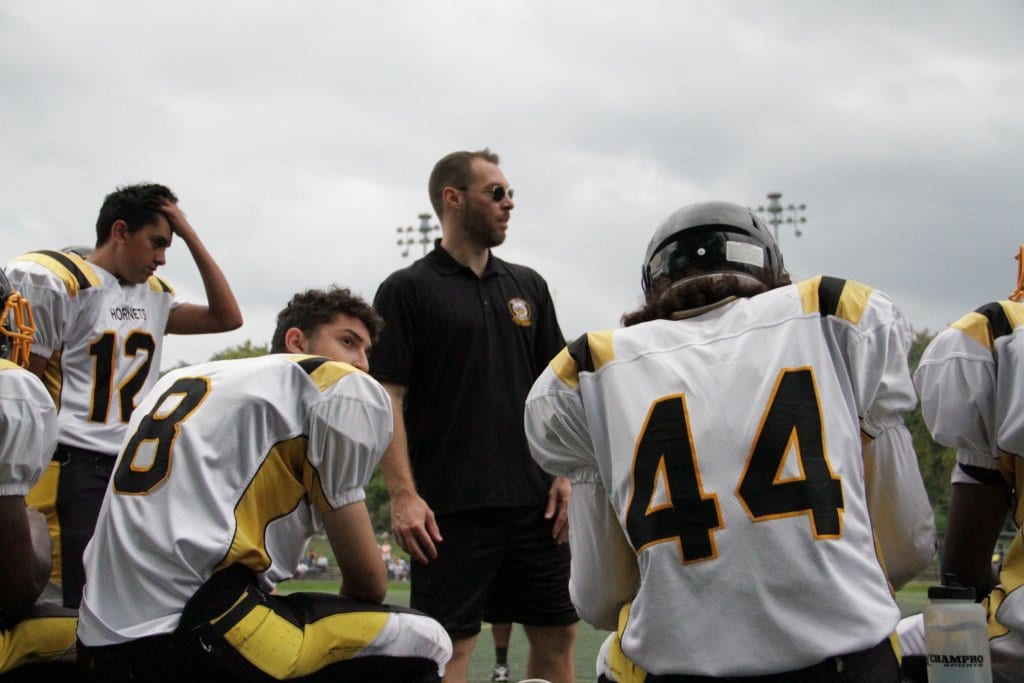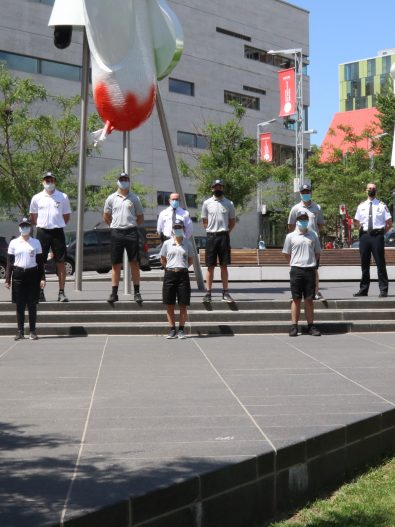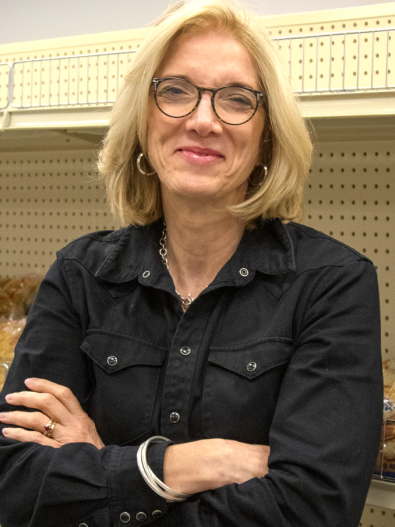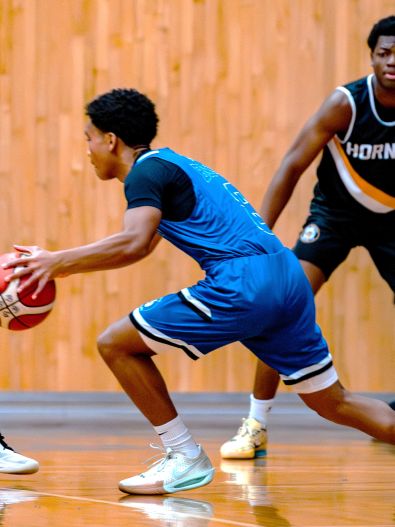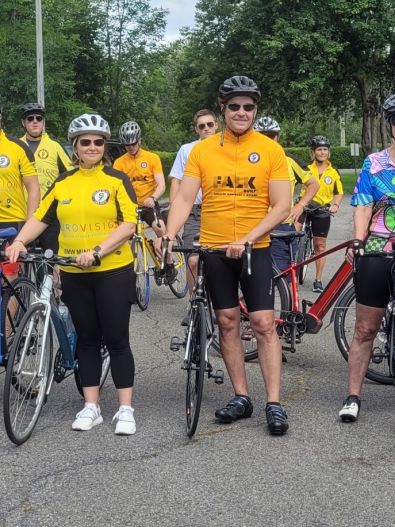Since Sun Youth and its sports teams were founded in 1954, thousands of people have taken part in its activities. Many of them have developed long-term friendships or a passion for coaching, and some have pursued professional careers in sports. Many former Sun Youth athletes have gone on to university.
Philippe Labrecque, a former football player at Sun Youth and now a coach for its Midget football team, is a good example of this. Philippe holds a Bachelor’s degree in Political Science and a Master’s degree in Public Administration from Concordia University, as well as a Certificate in European Political Studies from the Institute of Political Studies in Strasbourg and a Master’s degree from King’s College in London. He is currently a Marketing Development Analyst, but has also worked as a journalist, in particular with the Huffington Post. He is the author of the book Comprendre le conservatisme en quatorze entretiens (“Understanding Conservatism in fourteen interviews”), which was the subject of an interview conducted by Sun Youth’s Director of Communications, Ann St Arnaud.
Although our former athletes all have different backgrounds, there’s one thing that brings them together: an understanding of the sense of community. “I would say that sports and coaching play an important role in preserving a community on a small scale, that of a neighborhood, a group of young athletes, a community organization”, explains Mr. Labrecque in his interview. “In their very nature, the sports teams at Sun Youth (and those in various neighborhoods and regions) characterize this notion of proximity, where young players often literally live a few blocks from the football field or the sports center, and go to the same schools. This closeness helps to create relationships and build common memories that are shared by people who live together and form a community on a daily basis.”
The importance of the community goes beyond sports. This is a fundamental aspect of life, and our former athletes have discovered this at an early age. Another important lesson they learn is to trust both themselves and others, and to strive to build projects in which they will evolve with others. It is this spirit of sharing and the constant desire to grow with the community that has defined Sun Youth from the very beginning. Beyond helping acquire physical skills and improve performance, its sports teams contribute to the formation of the identity of individuals, and teaches them that united, we multiply our strengths, on the field and in life. “As coaches, we hope that the lessons players learned on the football field will also serve them in their personal lives and in their involvement with the community, and that they will help them serve others and preserve the spirit of community itself,” concludes Labrecque.
Complete Interview:
Question #1
Ann St-Arnaud : Philippe Labrecque, you have a bachelor’s degree in Political Science and a master’s degree in Public administration from Concordia University. You also obtained a certificate in European Political Studies from the Institute of Political Studies in Strasbourg, and a master’s degree from King College in London. You are currently a marketing development analyst, but you have also worked as a journalist, notably as a contributor to the Huffington Post newspaper. You are the author of the book Understanding Conservatism in Fourteen Interviews. All this time, you have been linked to Sun Youth. Can you describe your background within the organization?
Philippe Labrecque: With pleasure! I got to know Sun Youth through sport, basketball to be precise. At the time, I was a player on an opposing team of the organization (Pagé-Concordia) and our games against the Sun Youth Basketball team, the Hornets, were my first contact with the organization. Sun Youth’s sports programs have always had a very good reputation and when I became interested in football, I naturally turned to the organization’s football program.
Since then, my involvement with Sun Youth has taken me beyond football. I worked for the organization during the annual collection campaigns during the holiday season; in the summer as a bike patroller and as an animator for the organization’s day camp. All these roles have allowed me to deepen my knowledge of the organization and to make it known as well, but I believe that I am mainly and rightly associated with my involvement as a football coach in the Hornets football program since 2006.
As a coach, I started with the Atom level (7 to 9 years old) and I am now a coach with the Midgets (16-17 years old). Throughout this journey, I had the opportunity to be part of 4 provincial championships, including the Midget 2018 team that won the provincial and interprovincial championships after a perfect season.
Question #2
Ann St Arnaud: In your book Understanding Conservatism in Fourteen Interviews, you conducted interviews that took you to the United States, France, Great Britain and Switzerland. One of the people you spoke with is, in your opinion, “one of the most important British philosophers of our time”, the philosopher Roger Scruton. In this interview, he says he believes that people are naturally conservative because they spontaneously want to preserve certain things to which they attribute a certain value. They want to pass on a set of things to their children that they themselves inherited from their parents. Do you think that the transmission of knowledge by the football coach is in line with this conservative principle?
Philippe Labrecque: There are similarities between the role of a sports coach and the idea of intergenerational transmission. I believe that being a sports coach is, in fact, a way of passing on your knowledge, as Scruton points out. I would add that for coaches, it is also a way to stay involved in a competitive environment, which their deep nature often craves, being mostly former athletes themselves.
The transmission of knowledge from a coach to an adolescent player has this conservative aspect which implies a contract between generations and which consists in ensuring the preservation of a foundation, a heritage for the younger generations, for which the latter will also have to accept the responsibility of preserving and passing on in turn in the future. Every coach therefore builds a bridge between those who taught him, the last generation, and the current players, those who will in turn teach when the time comes.
I would say that sport and the role of a coach also serve to preserve the community on a small scale, that of a neighbourhood, a group of young athletes, a community organization. Community can be defined on a larger scale, such as the nation for example, which national sports teams and Olympic athletes represent very well. But the form sports teams take in Sun Youth (and in various neighbourhoods and regions) is one of proximity, while young players often live literally a few blocks from the football field or sports centre and attend the same schools. This proximity helps to create collective relationships and memories that are shared by people who live together and form a community on a daily basis. As coaches, we always hope that the lessons learned by the players in football will serve them in their personal lives and in their involvement in the community: to serve others and help preserve this community spirit.
I believe that this community aspect, this sense of responsibility and duty towards those who are part of our daily lives, is aligned with a conservative vision and a kind of coaching philosophy at the same time.
Question #3
Ann St Arnaud: By reading your book, we understand that the values dear to conservatives are family, respect for authority, traditions and institutions, work, academic success, the common good, etc. At Sun Youth, we are apolitical, but from reading your book, we understand that our co-founder, Earl De La Perralle, was obviously a conservative at heart. Do you think that the he has transmitted these values to you?
Philippe Labrecque: I believe that the main value I have retained from Earl is pragmatism. Earl could seem very strict and even tough for someone who would watch from afar, but he was, on the contrary, always able to adapt to a wide range of difficult situations, whether it was the socio-economic conditions of some of our young players, helping them in their academic and professional development as well as the many changes in mentalities in society and the different perspectives that the new generations of players and coaches brought.
Earl had this ability to always find a compromise, an agreement, a solution that answered everyone’s needs within reasonable parameters that allowed us to move forward collectively. Regardless of his personal or ideological feeling, Earl always put the collective well-being before his own, which is in a certain way conservative, in acting for the community, but also apolitical as you as you said, in the sense that the objective was never to impose his ideology but to maximize the well-being of others, regardless of their personal or political convictions.
If being a coach consists in being a kind of passer, an intergenerational protector of heritage as I mentioned, then Earl represents the greatest of all passers, having transmitted his knowledge to many generations after decades as a coach and as the co-founder of Sun Youth. You can’t reach so many different generations without being able to be pragmatic, flexible and have firm convictions at the same time, which Earl represented.
Question #4
Ann St Arnaud: You met the author and researcher in political history, Xavier Gélinas. He is also Curator of Political History and Assistant Director of the Division of Archaeology and History at the Canadian Museum of Civilization. In your book, Mr. Gélinas states that “one of the foundations of conservatism is the primacy of the community.” French journalist, essayist and researcher Laetitia Strauch-Bonart, whom you have also met, says that ‘’the curator considers that the bonds that people forge in a community make that community an entity greater than the sum of its parts – an entity that provides many benefits but also requires a number of sacrifices”. Don’t you think that’s the very definition of football?
Philippe Labrecque: Yes, I think we can talk about a micro community with regard to football and sports teams in general. As I mentioned earlier, the community is defined on several levels. For the players and coaches involved in a team, it is obvious that they form a community, not only because they must work together, but also because the well-being of all depends on each and everyone as the group works together to achieve a collective goal.
The individual, whether a player or a coach, is always secondary to the team, to the collective, which tends to confirm the foundation of “primacy of the community” of which Gélinas speaks, or “entity greater than the sum of the individuals” of which Strauch-Bonart speaks.
If I may allow myself a political-social comment, such devotion to the collective through self-denial to a certain extent, these ‘’sacrifices’’ of which Strauch-Bonart speaks, has become almost anachronistic in our time. Individualism seems to have turned into isolationism where the “I” prevails over the “We”; and where the “individualistic king figure” asks that we bow down at his feet and comply with the least of his demands, no matter how frivolous they may be. We have therefore developed a society in which the individual believes himself to be superior, more important than all the people who make up his community. And even though there are pockets of resistance, this perspective seems to dominate our modern society.
Without necessarily verbalizing it, I believe that many young players and even coaches are involved in football to escape this isolationism that is sometimes mimetic and involuntary. Within sport and football, they find that community aspect where they can contribute to something that represents a whole, a brotherhood that gives meaning to life that goes beyond the vain consumerist and egocentric pursuits that are rampant in public space today.
Let’s be frank, sport is not immune to this creeping individualism where examples abound of the quest for personal glory and oversized egos are present, even among the youngest. That being said, I believe that the individual has a profound need, in part, to sacrifice himself, to ignore himself in favour of a collective effort that allows him to achieve a sense of work well done, of duty accomplished, of having fulfilled his responsibilities towards others, which the individual alone cannot achieve. Perhaps sport offers this opportunity to share our lives and destinies and through this sharing, this sacrifice, individuals form a community spontaneously.




